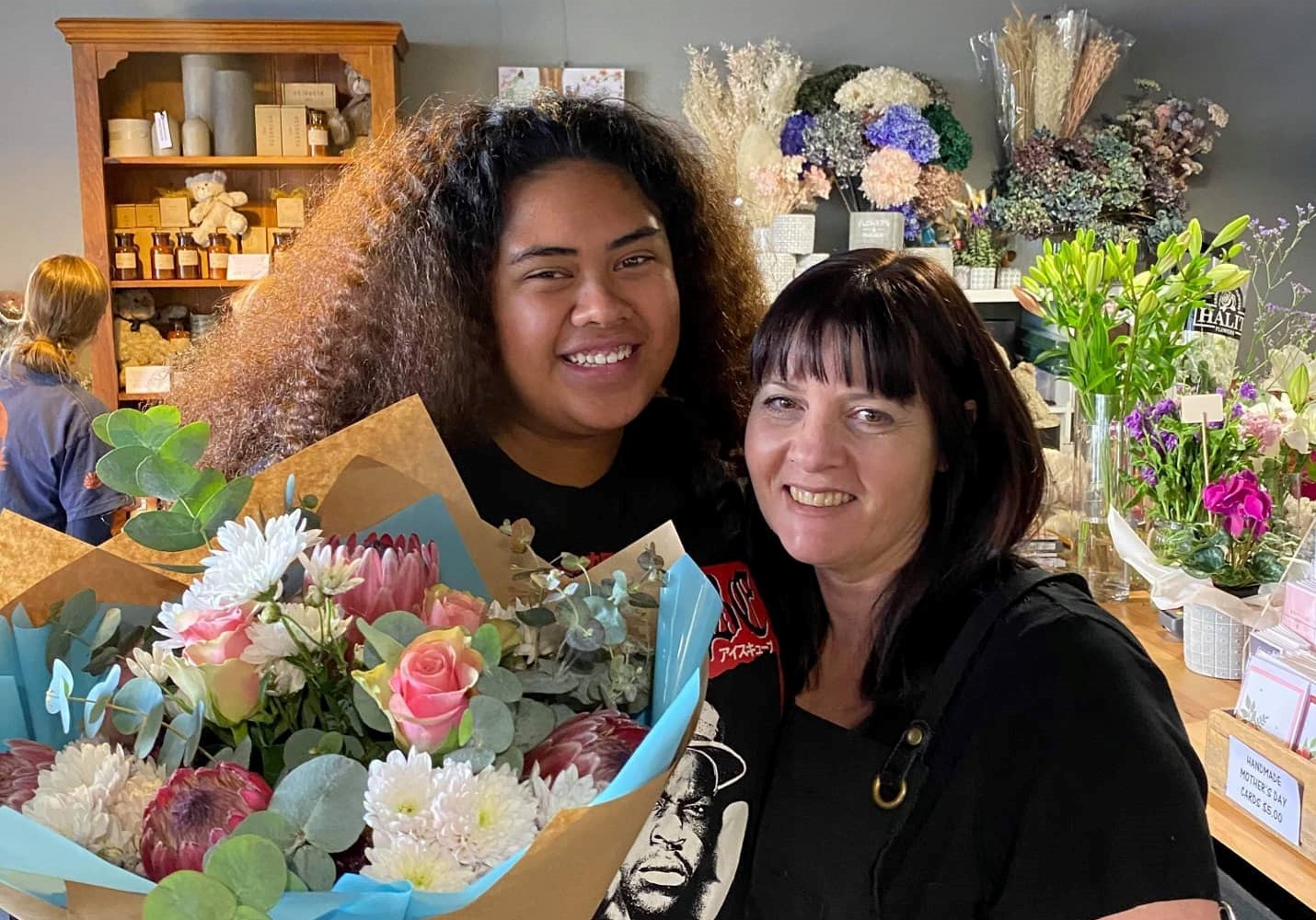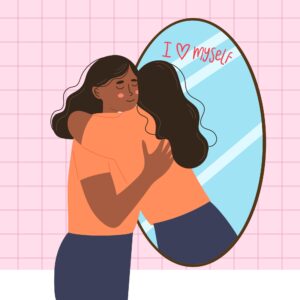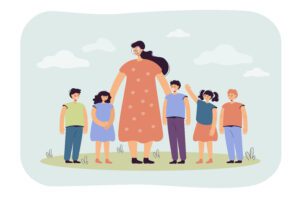The impact of L'Arté Central Social Enterprise in employing people with disability
According to research, 93% of unemployed people with disability have difficulty finding work. L’Arté Central Social Enterprise Café, Florist & Art Space (L’Arté) is making the workplace more inclusive of employees with disability.
L’Arté, pronounced as ‘laa·tay’, currently operates as a café in Clayton and a café and florist in Cranbourne East. Its purpose is to give real and meaningful work opportunities, especially in paid employment and training to people in the community who might otherwise never get.
Instead of facing staff shortage issues, L’Arté is creating a strong demand for a diverse workforce and leading the way for other hospitality and retail businesses to adopt a more open mindset to staffing in a post COVID world.
According to husband-and-wife Directors, Anthony and Sharon, being actively involved in the community plays an important role in your life. It not only gives you something to do but it improves all aspects of your life from your social skills to your physical health and your mental health.
We’re passionate to see people succeed... seeing people grow and flourish is probably the most exciting thing that comes out of what we do.
Sharon - Director Tweet

How the business was founded
The business idea started about 35 years ago when Anthony’s father committed suicide. It had a huge impact on their family, as well as the grief his family endured when his sister was diagnosed with disability resulting from an appendix surgery where the surgeon had operated incorrectly on her.
Sharon explains that both their lived experience of having close family members struggle with mental health issues and disability, set in motion their passion to do something about it and support other families experiencing similar problems. Anthony has a real genuine love for supporting people with disability.
One person you meet connects you with somebody else, that connects you with someone else. It’s all from the heart. It all falls into place. You do it because you actually want to see people succeed, and it’s not just about making the business work.
Sharon - Director Tweet
Sharon has worked in the corporate sector for over twenty years for companies such as Myer to gain her life skills and training. Meanwhile, Anthony started his career in Architecture drafting. They have always worked in hospitality, in which they owned two Michel’s Patisserie stores and owned other cafés. The husband-and-wife team have employed people with disability in their previous café ventures, but L’Arté was the first one to become a certified not-for-profit and started around five years ago.
According to Sharon, only 500 businesses in Australia that have the social enterprise certification. “Anyone can set up their business legally as a not-for-profit, but we what we do differently, is having that certification… even some big companies are not certified,” says Sharon.
The types of people with disability who work at L’Arté
Most of their workers and trainees have a National Disability Insurance Scheme (NDIS) package in which they receive government funding. These NDIS participants receive training from six to twelve months from L’Arté on their NDIS package to support their transition into paid employment. Sharon explains that depending on their skillset, the business will draw funding from their NDIS package for a short period of term before they start getting paid a full wage.
For example, one of the chefs had previously worked in the hospitality sector for over ten years before he had a nervous breakdown. He has the skillset, but because his body was not able to function like it normally would, he was then able to receive NDIS funding. Sharon explains from there they were able to train him and build his confidence up again to use his culinary skills. He currently draws out a small amount from his NDIS funding for one hour each day to cover the training support while getting a full wage for working 25 hours each week.
Sharon explains that they won’t be able to do it for everybody as some people won’t be at a stage where they are able to be employed. Sharon says, “that’s okay as not everyone is suited to a café florist store, or a catering site.”
However, most people who come through their doors have been able to access other pathways from the training and skill-development at L’Arté. For example, some NDIS Participants have gone on to work at training facilities or office administration tasks at GP clinics. Wherever they are on the employment journey, L’Arté is a place they can come to and build their confidence to be able to do other things.
We're resume writers. Sharon - Director Tweet
Providing flexibility in the workplace
L’Arté pays full wages to four employees with disability and supports eleven trainees who draw out of their NDIS funding. However, Sharon explains that they also employ other adults who don’t fit into standard employment as they may have undiagnosed disability. For example, they may have ADHD, depression, or anxiety, and so these kinds of people require more flexible working arrangements and time.
While it is important to have a diverse workforce, Sharon admits this can sometimes come at a cost for the employer. For example, you may need to employ more full-time employees who require part-time hours instead of having one employee do full-time hours for the week. Sharon says, “you end up having more staff hours than you should have as you have two people do the job of one and a quarter people.”
That is why the mission to put the profits back into wages is so important for L’Arté as the wage costs to run the business is always very high.
We put money back into employing people in the business. That’s what we believe will make a difference in their lives.
Sharon - Director Tweet
Ways the government can better support students with disability into the workplace
Given that students with disability have a higher rate of unemployment than students without disability after they graduate from high school, Sharon believes that the government should offer a cash payment to the employer. This would assist the employer to train students with disability when they first come out of school. It would be a financial incentive for employers to give them a job opportunity and provide more flexibility to organisations over a set period in covering the training and operational costs to take on students with disability.
Sharon says, “there are a lot of expenses taken into consideration, such as work cover, super, tax, which makes the costs to hire go up and up. There needs to be a current incentive for employers to take it on board.”
Sharon further highlights organisations, such as L’Arté, should be able to use government supported facilities that do not charge high rent and other operational costs. This would make it easier to train people with disability so the employer does not have to think about the high costs it will take to train the person and run the business.
Advice to other small to medium-size businesses on creating a more inclusive and accessible workplace
Sharon honestly shares that unless the business owner has lived experience or has been impacted by someone with disability or mental health illness that they know, it will be hard work without believing in the cause and the business won’t succeed if they are only doing it for the profit.
You have to do it for the right reasons. You must have compassion and show that you genuinely care about assisting people with disability. You can’t just do it for a few more dollars in the bank for having someone with disability on board.
Sharon - Director Tweet
One of the problems they currently face is transitioning people into full-time employment as the business is not big enough yet to take on more full-time paid employees. However, Sharon explains that most of their trainees have wanted to move on to other things themselves, as they get to a stage where they are ready to do something new after working at the café for a few months and years. L’Arté is about building confidence in people to pursue something they really want to do.
The future is looking big and bright for L’Arté
They currently employ twenty locals who support and encourage another eighteen local NDIS recipients. These amazing people participate in approximately 90 hours a week in their florist, kitchen, and café store. This not just transforms their lives but also their family, their friends, and the whole community.
The Directors are investigating opportunities to grow and expand L’Arté into many other communities. Sharon shares that the big dream is to have a L’Arté business set up in all 52 local municipalities across Australia.
We believe that every community should have a commercial kitchen facility like our L'Arté Central Social Enterprise.
Sharon - Director Tweet
Are you interested to support this cause?
Your donation will help L’Arté in their endeavours to expand and provide further training, employment and participation opportunities to people doing it tough. Every community deserves a L’Arté! Show your support by donating to the cause here.
At The Disability Company, we care about providing a variety of employment opportunities to our community.
We will be introducing a new meaningful employment grant that will be donated to a student with disability at our award’s ceremony at the end of the year to support them on their career development journey.
We are also launching a new YouTube Series where one of our participants will be interviewing other people with disability about their journey to find meaningful employment.
If you have a story you would like to share with us, please reach out to our communications team on services@disabilityco.com today.
Check more events and stories

Exploring Adaptive Sports and Recreation Opportunities in Australia
Discover empowering opportunities like wheelchair basketball, adaptive cycling, and more that promote inclusion and achievement

Self-Care Strategies for Individuals with Disabilities and Chronic Conditions
Discover practical self-care strategies tailored to the unique needs of individuals with disabilities and chronic conditions. From prioritizing rest and nutrition to cultivating emotional well-being and setting boundaries, empower yourself to enhance your overall quality of life and wellness journey.

How Aged Clients Can Benefit from In-Home Care
How Aged Clients Can Benefit from In-Home Care in Victoria More Australians are choosing to live at home to maintain their independence as they age.

How to Choose a Quality NDIS-Registered Support Provider
Choosing a NDIS-Registered Support Provider in Victoria Trying to find an NDIS provider that provides quality, short and long-term care? Quality support means understanding and

Embracing Inclusive Recreation: A Guide to Accessible Leisure Activities for People with Disabilities
Embracing Inclusive Recreation: A Guide to Accessible Leisure Activities for People with Disabilities

The Role of Caregivers: Supporting Loved Ones with Disabilities
Discover the vital role caregivers play in supporting individuals with disabilities. From understanding their challenges to offering practical strategies, this article sheds light on the importance of self-care, communication, and advocacy. Reach out if you need support on this journey.

